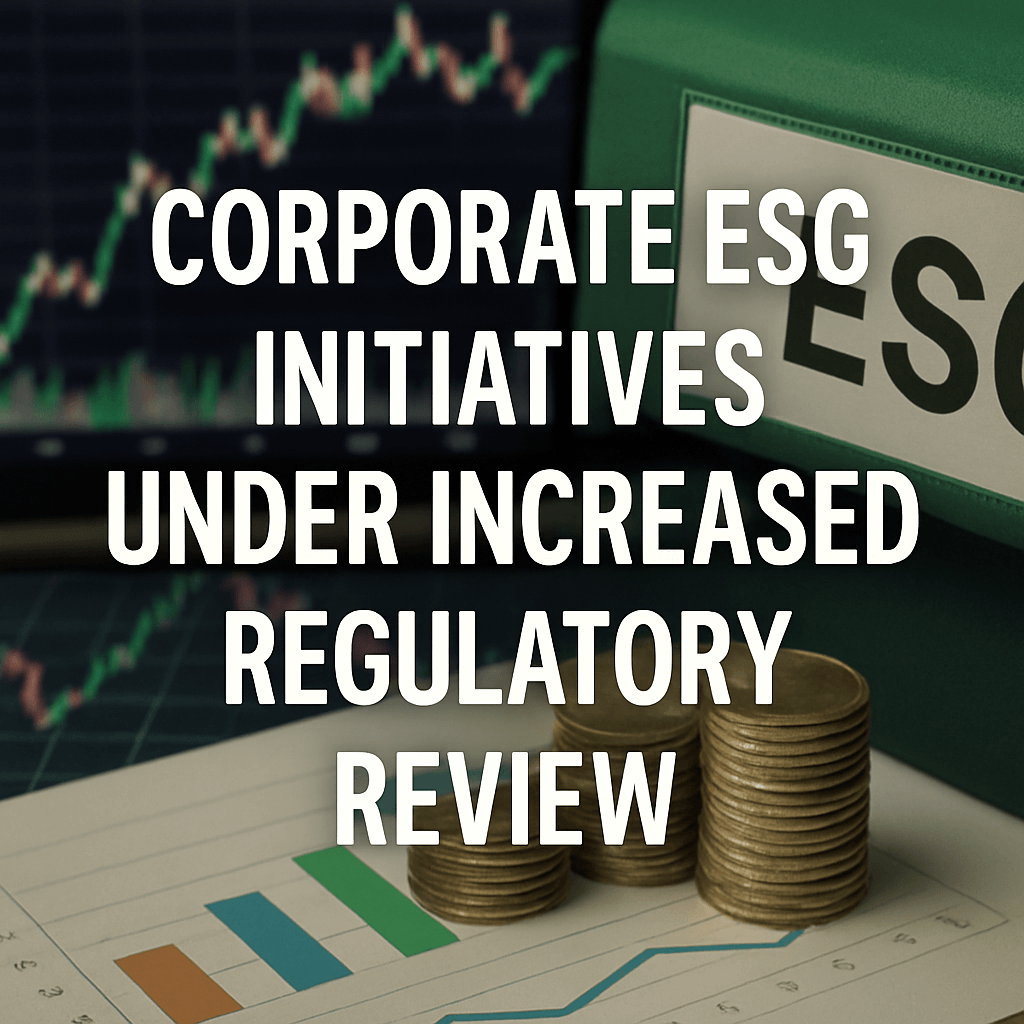Corporate ESG Initiatives Under Increased Regulatory Review

While Diversity, Equity & Inclusion (DEI) programs often dominate corporate responsibility conversations, Environmental, Social, and Governance (ESG) frameworks are also under intensified scrutiny in the second Trump administration. A recent Conference Board report, surveying 125 senior sustainability and ESG executives at leading U.S. and multinational corporations, finds that roughly 80% of companies are recalibrating their ESG policies to mitigate evolving legal and political risks.
Political and Regulatory Shifts Under the Second Trump Administration
Since inauguration, President Trump has enacted measures to roll back climate-related disclosures and reduce the regulatory scope of the Environmental Protection Agency (EPA). Key actions include:
- Revocation of the Biden-era rule requiring Scope 1, 2, and 3 greenhouse gas (GHG) disclosures as set out in the Securities and Exchange Commission’s (SEC) proposed climate risk rule.
- Issuance of Executive Order 2023-05, “Protecting American Energy from State Overreach,” which prohibits states from imposing ESG-related criteria on public pension investments.
- Reduction of EPA enforcement staff by 15% and suspension of new New Source Performance Standards for power plants.
- House Financial Services Committee hearings scheduled for July 2024 to examine alleged “ESG discrimination” by asset managers, signaling continued political headwinds.
“There have been a lot of very sudden policy swings,” says Andrew Jones, Principal Researcher at the Conference Board’s Governance & Sustainability Center. “Member companies are grappling with how best to navigate this environment.”
Corporate Responses and Policy Adjustments
According to the Conference Board report, only 6% of surveyed firms have made significant overhauls to their ESG frameworks, while 45% have implemented minor tweaks and 29% moderate adjustments. Boards and senior leaders are prioritizing three core objectives:
- Enhancing legal defensibility through in-depth compliance reviews with internal legal counsel and external specialists focusing on ESG litigation risk.
- Prioritizing initiatives with clear ROI metrics, such as energy efficiency retrofits validated by International Finance Corporation (IFC) performance standards and green bond frameworks aligned with ICMA guidelines.
- Integrating sustainability KPIs into executive compensation models to ensure alignment with Enterprise Value Creation over the mid and long term.
Regulatory Divergence and Compliance Complexity
The fragmentation of ESG regulation across federal, state, and international jurisdictions poses a significant challenge:
- States like California and New York maintain stringent climate and human rights disclosure mandates, effectively setting de facto national standards for companies operating there.
- Multinationals face compliance with the EU’s Corporate Sustainability Reporting Directive (CSRD), requiring audited disclosures from 2025, and the IFRS Foundation’s ISSB S1/S2 climate standards published in June 2023.
- Texas, Florida, and several other states have enacted laws prohibiting state-managed funds from using ESG criteria in investment selection.
“The widening gap between federal rollback and state-level expansion makes compliance a moving target,” notes Mary Thompson, ESG Risk Partner at Deloitte.
Financial Impacts on Capital Allocation
Investor sentiment is shifting as asset managers recalibrate portfolios to manage regulatory and reputational risk. Key trends include:
- Increased issuance of transition bonds to finance projects that reduce carbon intensity, with yields tightening by 10–15 basis points year-over-year.
- Growing demand for ESG-linked revolving credit facilities, where interest rates adjust based on achievement of predefined sustainability KPIs.
- Heightened oversight by proxy advisory firms such as ISS and Glass Lewis, influencing over 60% of say-on-pay votes with ESG performance criteria.
Global Standards and Future Outlook
Despite U.S. regulatory headwinds, international efforts to standardize ESG reporting are gaining momentum:
- ISO’s forthcoming 2024 update to the ISO 14097 standard on climate finance metrics.
- Collaboration between the IFRS Foundation’s ISSB and the Global Reporting Initiative (GRI) to harmonize reporting frameworks.
- Statements from SEC Chair Gary Gensler indicating potential reinstatement of federal climate disclosure rules under a future administration.
Corporate leaders are advised to adopt a scenario-based risk management approach, stress-testing portfolios against multiple regulatory futures and incorporating real-time ESG data feeds for dynamic compliance monitoring.
Key Takeaways
- 80% of companies are adjusting ESG policies; only 6% have made major overhauls.
- Regulatory divergence drives complexity and compliance costs.
- Robust ESG strategies now focus on legal defensibility and quantifiable ROI.
- Global standardization initiatives continue independently of U.S. policy shifts.